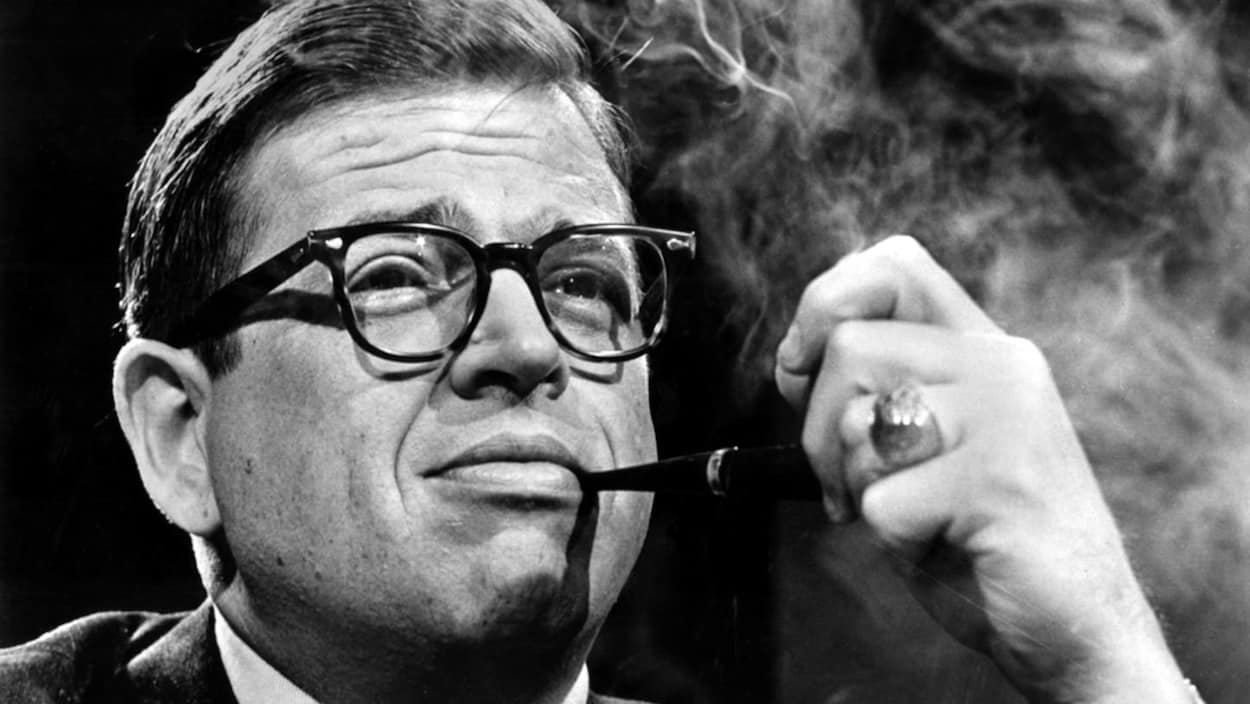Have you ever had the experience of being hungry or thirsty, but not knowing exactly what you wanted—a time when you stood looking inside the refrigerator, saying to yourself, “I want something, and I don’t know what, but I do know it isn’t anything here?” Many people have this feeling not in regard to food, but in terms of life itself: they experience an emptiness in their soul, a need or longing, for happiness and freedom and success, for achievement and purpose and inner peace—and nothing this world has to offer can meet this need in a truly complete and lasting way. As Christians, we believe our deepest emptiness or longing can only be satisfied by Jesus—and over the ages, many people have discovered this truth for themselves.
One such person was a man named Tom Phillips. About fifty years ago, Tom, at the age of 40, was president of the largest company in Massachusetts, a millionaire with a Mercedes, a large and impressive home, and a beautiful family—but he was unhappy; something was missing, and he didn’t know what it was. Fortunately, he underwent a religious conversion and turned his life over to Jesus Christ, and from then on he found a happiness and peace, and a sense of purpose in life, he had never expected. A few years later another man, Charles Colson, was undergoing a similar experience of emptiness and dissatisfaction. He was a special assistant to President Nixon, with a White House office, a yacht, a limousine, and a chauffeur—but all his power and material success didn’t bring him peace or fulfillment. He happened to meet Tom Phillips, who told him all about his own conversion—and as he spoke, Charles Colson realized that in order to fill what he later called the “gnawing hollowness” deep inside himself, he didn’t need something, but Someone. Shortly after leaving Tom Phillips’ home that night, Charles Colson had to pull over because he was crying too hard to be able to continue driving. He prayed what he later called his first real prayer, in which he said aloud, “God, I don’t know how to find You, but I am going to try! I’m not proud of myself as a person as I am right now, but I want to give myself to You. Take me, take me, take me” [paraphrased]. Like Tom Phillips, Charles Colson underwent a profound religious conversion in which Jesus became the center of his life. To the amazement and incomprehension of the news media and political establishment in Washington D.C., he left the White House, gave up politics and life in the fast lane, and instead founded a ministry—one that allowed him to travel across the country, preaching the Gospel and telling his life story to many thousands of people, especially at college campuses and in state and federal prisons (Mark Link, S. J., Illustrated Sunday Homilies, Year B, Series I, p. 87).
Back in the 5th century St. Augustine noted that our hearts are restless until they rest in Christ, and more recently, someone remarked that our hearts have a “God-shaped hole” in them, an emptiness that cannot be truly satisfied by anything or anyone other than God Himself. Because we are made in the image and likeness of God (Gen. 1:27), no earthly creature or created thing can fill our deepest need. Our lives will be ultimately happy and successful only to the extent we surrender them into the hands of Jesus.
In the Gospel of John (6:24-35), Our Lord promises that, as the Bread of Life, He is able to satisfy our deepest hunger and thirst. God has always responded to the needs of His people; we see in the Book of Exodus (16:2-4, 12-15) that He provided, in an unexpected way, bread and meat to the Israelites during their journey through the desert. Centuries later Jesus Himself miraculously multiplied five loaves and two fish into enough food for five thousand people; however, He urged them to seek not mere physical nourishment, but the spiritual food which He alone can give. We too must have proper priorities, for as St. Paul says in his Letter to the Ephesians (4:17, 20-24), we are called to put away our old selves and former way of life, letting ourselves be renewed in God’s way of righteousness and truth.
I remember learning from the nuns in grade school that worldly things cannot bring true and lasting happiness, but this lesson never really sunk in until I was about ten years old. For Christmas I wanted a cowboys and Indians playset; I knew my parents had purchased it and locked it away, and I was counting the days until Christmas arrived. I was finally able, with great excitement, to unwrap it, unpack all the pieces, and beginning playing with it, and it was great fun—at first. After a couple of days, however, I was bored with and even disappointed with it, and it suddenly occurred to me that the Sisters were right: getting what I wanted didn’t make me a better or happier person in the long run.
I thank God for the grace of learning that lesson relatively early in life; unfortunately, there are many adults in our society—perhaps even a majority—who haven’t yet figured out or accepted this truth. Rich, popular, successful people are known to act in a self- destructive manner because of their inner emptiness, and people from all levels of society abuse alcohol or drugs, do things that ruin their relationships or reputations, and even attempt or commit suicide. None of this was ever God’s plan, and the Lord wants us, as His beloved children, to avoid a tragic and hopeless existence, and instead to find peace during our earthly lives, even as we prepare ourselves for the eternal joys of Heaven.
Jesus is the answer, and He invites us to center our lives around Him. Life isn’t meant to be an unhappy drudgery, and religion isn’t meant to be safe, boring, or conventional. We are called to take the risk of surrendering completely to the Lord, so that our lives may become a spiritual adventure, so that our sufferings and burdens may achieve a higher purpose, and so that our deepest needs and hopes may be fulfilled. This is especially true for us as Catholics, for if we receive the Bread of Life—Holy Communion—in a state of grace, we allow Jesus to be present and active within us in a powerful and wondrous manner, leading us to eternal life. Even if we’re apparently trapped in a difficult or unhappy life, regular reception of the Eucharist can give us the strength we need to persevere and reassure us that our efforts to be faithful to the Lord are not wasted or in vain. This amazing promise is utterly reliable—and if we haven’t already put Jesus as the center of our lives, now is the time to do so. He alone can meet our deepest hunger and thirst—but the decision to let this happen must be ours.








